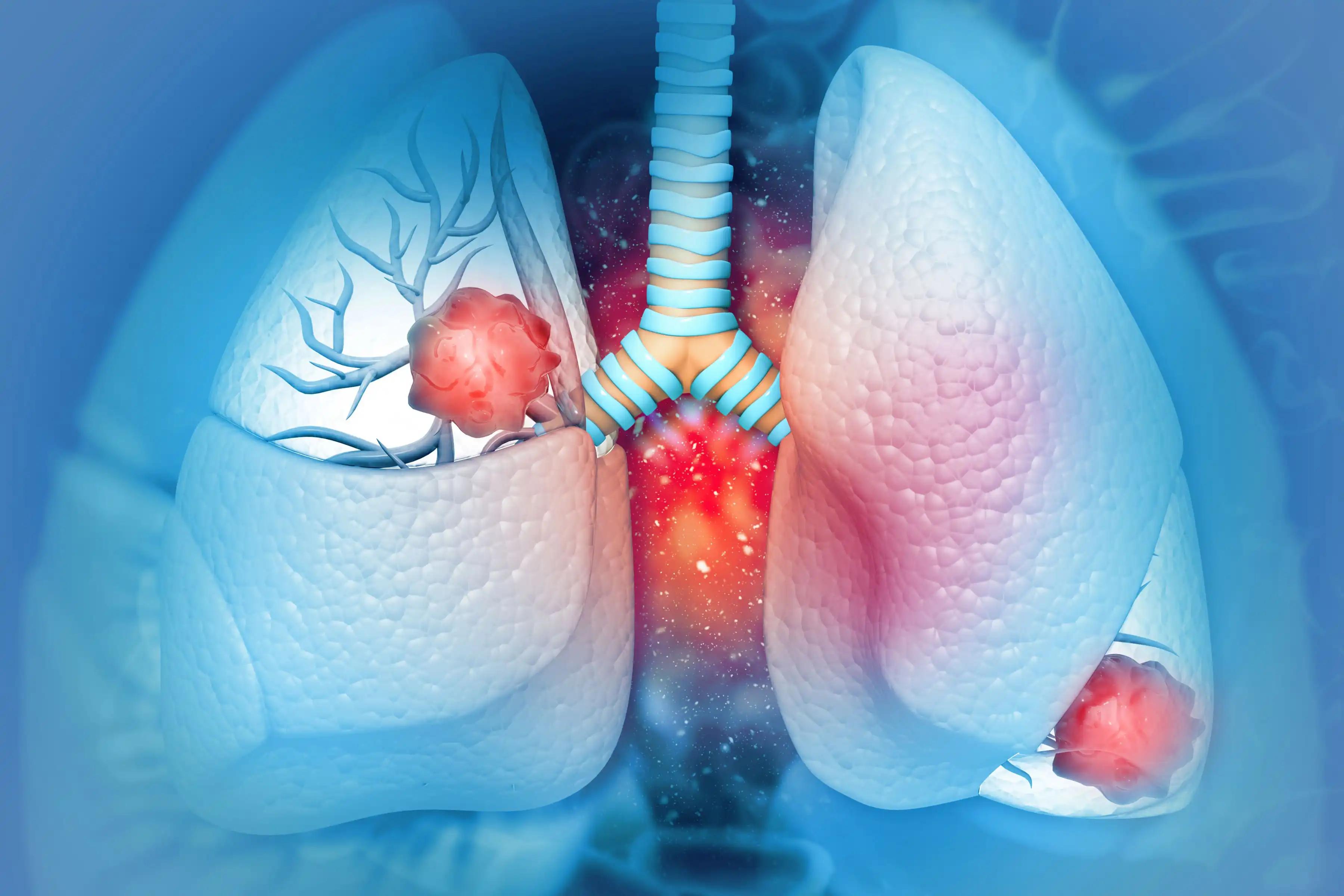KEY TAKEAWAYS
- The ETER 701 phase 3 trial aimed to assess the impact of anlotinib combined with EC compared to placebo + EC in first-line ES-SCLC therapy.
- The co-primary endpoints were PFS and OS.
- Anlotinib with chemotherapy improved PFS, OS, comparable to immunochemotherapy, with manageable safety in first-line ES-SCLC.
The OS improvement with immunochemotherapy in extensive-stage small cell lung cancer (ES-SCLC) is unsatisfactory. Anlotinib, an anti-angiogenesis agent, potentially reprograms the tumor microenvironment, offering synergistic benefits with chemotherapy and immune checkpoint inhibitors.
ETER701, the first randomized phase III trial, compares anlotinib + etoposide/carboplatin (EC) ± benmelstobart (a novel PD-L1 inhibitor) to placebo + EC in first-line ES-SCLC therapy. Anlotinib + EC + benmelstobart demonstrates historically longest OS.
Ying Cheng and the team aimed to present the data comparing the outcomes of anlotinib + EC (anlotinib arm) to placebo + EC (EC arm).
The study was conducted across multiple centers and employing a double-blind, placebo-controlled design, eligible ES-SCLC patients were randomly assigned in a 1:1:1 ratio. They received either benmelstobart + anlotinib + EC, placebo + anlotinib, or placebo + EC for four 21-day cycles. Subsequently, maintenance therapy comprised benmelstobart + anlotinib, placebo + anlotinib, or placebo + EC.
The co-primary endpoints were progression-free survival (PFS), evaluated by the independent review committee (IRC), and overall survival (OS) within the intention-to-treat population.
Among 738 patients enrolled from March 18, 2020, to December 18, 2021, 245 were allocated to the anlotinib arm and 247 to the EC arm. With a median follow-up of 14.0 months (data cut-off May 14, 2022), median PFS was significantly longer in the anlotinib arm compared to the EC arm ([5.6 months vs 4.2 months; HR, 0.44; 95%CI, 0.36 to 0.55; P<0.0001]). Median OS was 13.3 months in the anlotinib arm and 11.9 months in the EC arm ([HR, 0.86; 95%CI, 0.67-11.10; P=0.1723]).
The incidence of grade 3 or higher treatment-related adverse events was 94.3% vs 87.0%, and [2.5% vs 1.6%] were grade 5, respectively.
The study concluded that combining anlotinib with chemotherapy resulted in a notable enhancement in PFS and a potential increase in OS compared to chemotherapy alone in first-line ES-SCLC therapy.
Furthermore, the survival advantages of the anti-angiogenesis plus chemotherapy regimen were similar to those of immunochemotherapy. Additionally, the safety profile of this combination was deemed tolerable and manageable.
The trial was sponsored by the Chia Tai Tianqing Pharmaceutical Group Co., Ltd.
Clinical Trial: https://clinicaltrials.gov/study/NCT04234607
Cheng, Y., Yang, R., Chen, J., et al. (2024) “Anlotinib plus etoposide/carboplatin (EC) versus placebo plus EC in first-line therapy for extensive-stage small cell lung cancer (ES-SCLC): A randomized, double-blind, parallel controlled, phase III trial (ETER 701)” Presented at ELCC 2024. Annals of Oncology (2024) 9 (suppl_3): 1-11. 10.1016/esmoop/esmoop102577 (196MO)



